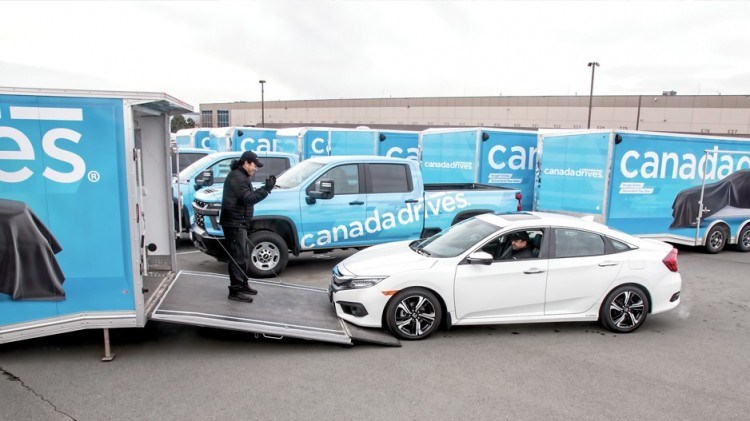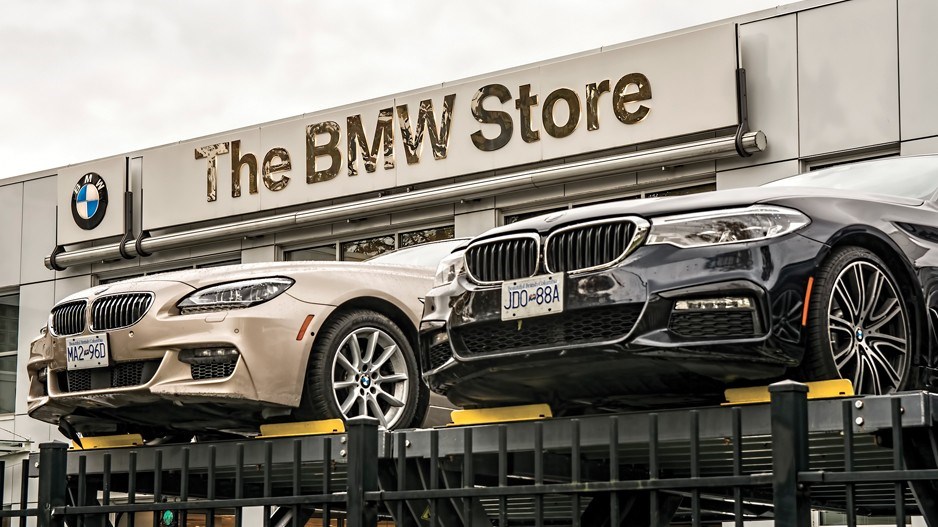Mike Wood had already been contemplating a new business model for selling cars online when he approached his business partner about two years ago.
“I said, ‘I think 2020 would be a good year for this.’ Little did I know that this little thing called COVID would really rapidly push dealers towards digital,” said the co-founder of TrafficDriven Technologies Inc. (Mintlist).
After raising $3.2 million from investors, Mintlist is in the midst of beta testing its online selling, buying and trading platform for vehicles in Metro Vancouver, with the aim of fully launching its services and expanding into other markets such as the Calgary-Edmonton corridor and Vancouver Island in 2022.
It will join an increasingly crowded arena of other B.C. tech companies that have launched online vehicle sales this year, with fintech Canada Drives Ltd. getting into the business this past March and startup Autozen Technology Ltd. following soon after.
“It's so early in the market that I'd say that this is not a winner-take-all market at this point in time,” Wood said.
“It is such a massive opportunity that you're going to have a number of players that are in there doing their thing and it's going to appeal to certain consumers. And another format may appeal to different consumers.”
The B.C. company aggregates inventory among the 80-plus dealers it’s partnered with across the province for access to 15,000 vehicles. Dealers are charged a fee to access the program as well as a 1% fee every time they buy or sell a car using the platform.
Consumers can also use the platform to auction off their cars (each vehicle must go through a 13-point basic inspection using the owner’s smartphone) and decide whether or not to accept the high bid after the end of the auction.
Story continues below image

Vancouver-based Canada Drives, best known for securing financing for vehicles, has since expanded into offering customers the option of buying used cars through its platform. There’s no room for any haggling on the platform, but once the vehicle is purchased, Canada Drives delivers it in a trailer within a day of sale.
Late this summer the company secured $100 million in funding from investors in a bid to service 80% of the Canadian market and add 200 workers over the next year to its current roster of 500 employees.
“Just seeing it resonate so quickly with Canadians is a pretty exciting thing to be a part of," co-CEO Cody Green told BIV in August.
Meanwhile, Autozen launched an online marketplace for vehicle sales earlier this year after it raised $4.2 million in a private equity investment back in January.
Users looking to sell can plug in their vehicle’s make, model and year, and Autozen will respond with a range of prices for how much the automobile will likely fetch. The platform is free for consumers to use; Autozen charges a commission to dealers for every vehicle sold.
“The automobile buy-and-sell market is still massively dominated by traditional players, so the online place will remain a non-zero-sum game for some time,” Autozen CEO Olivier Vincent said in an email.
“New players in online auto sales help grow notoriety for the space, which we think is good. One thing we pay a close attention to is whether these new players are too cozy with the establishment or offer a really balanced solution.”
Story continues below image

Data released in October from Google Canada shows 92% of Canadians are still buying their vehicles at dealerships.
The proportion of new cars bought online may seem like a small number, “but it’s six times’ growth from before the pandemic,” Al-Karim Awadia, head of automotive industry for Google Canada, said during an October panel.
Dimitri Kotsalis, vice-president of regional operations for OpenRoad Auto Group Ltd., said drivers still want to touch and feel any vehicles before making a purchase.
“[It] felt like when COVID really hit initially that everybody was going to just jump right to that digital land … but in reality the progression of that has not only been a little slower than what we initially thought may happen, but it’s also turned out to be not what the vast majority of consumers are telling us that they want,” Kotsalis, whose auto group represents 21 brands at 34 stores, told BIV in October.
“They want to be able to see the car up close; they want to be able to sit in it, drive it.”




